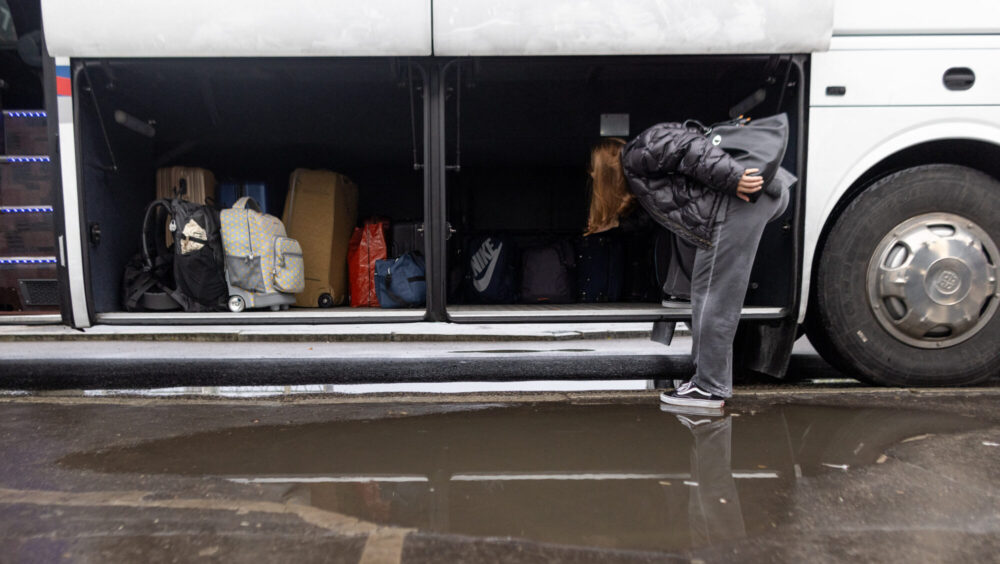
Wojtek RADWANSKI / AFP
The lives of Ukrainian refugees living in Central European countries could drastically change if a ceasefire or a peace deal is achieved in Ukraine.
Talks between U.S. and Russian officials in Saudi Arabia on Tuesday, February 18th marked the first step towards striking a peace deal to end the Russo-Ukrainian war that has been raging for three years since Russia’s invasion on February 24th, 2022.
According to official statistics, 4.3 million Ukrainians have received temporary protection in the European Union. Germany hosts the largest number of Ukrainians (1.2 million), followed by Poland (990,000), and the Czech Republic (390,000).
However, with the news of a ceasefire being potentially achieved in the next few months, some countries are already issuing statements on what a peace deal would mean for its refugees.
On Tuesday, Czech Interior Minister Vít Rakušan said that after the declaration of a ceasefire or after the end of the war, Ukrainians in the Czech Republic will no longer receive temporary protection, meaning they will no longer be able to access public health care and education free of charge, education, and work in the country.
However, they will still be able to stay in the country for a certain period of time and would have the opportunity to apply for temporary residence, the minister added.
A recently adopted law introduces a pathway for long-term residence permits for Ukrainian refugees who have lived in the country for over two years. They are eligible to stay if they are financially self-sufficient, have stable housing, and their children are enrolled in the Czech education system.
In the meantime, Polish companies are worried that the mass departure of Ukrainian workers would seriously disadvantage many industries.
Kamil Sobolewski, chief economist at the Employers of Poland organisation representing manufacturers, entrepreneurs, and investors, said Ukrainian women leaving the country would hit the Polish hotel and catering industry hard, as well as trade, logistics, and care services.
The need to reconstruct Ukraine after the war would also mean a large number of Ukrainian men would also return, leaving a huge gap in the labour market regarding construction workers and drivers.
Only 21% of refugees plan to settle in Poland permanently, according to data by the Polish Economic Institute.
Ukraine itself not only has a shortage of soldiers in its fight with the slowly advancing Russian troops, but also faces the dilemma of a huge lack of skilled workers. The government in Kyiv recently launched an initiative to establish “unity hubs” in countries with high numbers of Ukrainian refugees to connect Ukrainians with their homeland.
Deputy prime minister Oleksiy Chernyshov gave assurances that Ukrainians interested in returning home could be exempt from military mobilisation, saying Kyiv was ready to reintegrate skilled workers who are needed in many critical industries.
The question, of course, remains whether Ukrainians living in neighbouring EU countries feel that it is safe enough to return home even if a ceasefire is reached.
